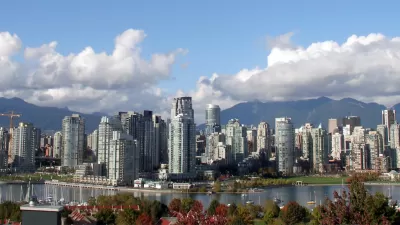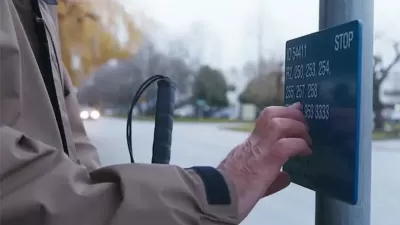A system similar to that which heated Roman baths could become a key cog in the future of heating in Vancouver, British Columbia.
Frances Bula details the district-energy systems (i.e., recycling heat from neighborhood wastewater) already in use in Vancouver and the plans of one developer scale such systems for use in the city's downtown.
Frances Bula reports that 22 buildings around the city already use "district-energy systems," or "neighborhood energy utilities" as they're called by Vancouver. Such systems trap the heat produced by wastewater for reuse in room-heating and hot-water systems. "Compared with arrangements where each building fires its own boiler," writes Bula, "it reduces greenhouse gas emissions by 60 percent."
But the current micro-scale of such systems could be about to go big time: "One of the city’s biggest real-estate developers recently announced plans to use a similar model for building out a utility for much of Vancouver’s downtown peninsula."
The developer, Ian Gillespie, says his company, Creative Energy, "will dramatically reduce Vancouver’s overall production of greenhouse gases and go a long way to helping the city meet ambitious environmental goals in its 'Greenest City 2020 Action Plan.'"
Bula's coverage details more of the policy and infrastructure investments that paved the way for the first district-energy systems as well as what it will take for Gillespie to make good on his vision for an overhaul of the city's gas-powered heating infrastructure.
FULL STORY: Heating the city, one neighborhood at a time

Alabama: Trump Terminates Settlements for Black Communities Harmed By Raw Sewage
Trump deemed the landmark civil rights agreement “illegal DEI and environmental justice policy.”

Planetizen Federal Action Tracker
A weekly monitor of how Trump’s orders and actions are impacting planners and planning in America.

The 120 Year Old Tiny Home Villages That Sheltered San Francisco’s Earthquake Refugees
More than a century ago, San Francisco mobilized to house thousands of residents displaced by the 1906 earthquake. Could their strategy offer a model for the present?

In Both Crashes and Crime, Public Transportation is Far Safer than Driving
Contrary to popular assumptions, public transportation has far lower crash and crime rates than automobile travel. For safer communities, improve and encourage transit travel.

Report: Zoning Reforms Should Complement Nashville’s Ambitious Transit Plan
Without reform, restrictive zoning codes will limit the impact of the city’s planned transit expansion and could exclude some of the residents who depend on transit the most.

Judge Orders Release of Frozen IRA, IIJA Funding
The decision is a victory for environmental groups who charged that freezing funds for critical infrastructure and disaster response programs caused “real and irreparable harm” to communities.
Urban Design for Planners 1: Software Tools
This six-course series explores essential urban design concepts using open source software and equips planners with the tools they need to participate fully in the urban design process.
Planning for Universal Design
Learn the tools for implementing Universal Design in planning regulations.
Clanton & Associates, Inc.
Jessamine County Fiscal Court
Institute for Housing and Urban Development Studies (IHS)
City of Grandview
Harvard GSD Executive Education
Toledo-Lucas County Plan Commissions
Salt Lake City
NYU Wagner Graduate School of Public Service





























